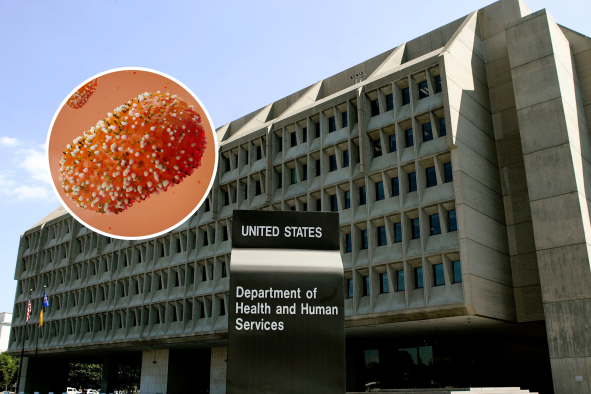Mpox has been declared a "public health emergency of international concern" by the World Health Organization amid the spread of a deadlier form of the virus through multiple African countries.
At least 14 African countries have reported mpox outbreaks so far this year, with 17,000 suspected cases across the continent since the start of 2024 and 517 confirmed deaths. This is according to the Africa Centres for Disease Control and Prevention (CDC), with more than 96 percent of all cases and deaths occurring in Congo, a country in Central Africa.
Mpox, previously called monkeypox, rose to recognition during the global outbreak in 2022, affecting the U.S., Europe, Australia and many other countries. The virus comes in two "flavor"s—clade I and clade II—and spreads through close contact.
The previous outbreak in the U.S. and Europe was driven by the clade II form of the virus and was mostly spread through sexual and intimate contact, with men who have sex with men being at the highest risk of infection. However, the current surge in Africa is being driven by a new variant of the clade I virus, called clade Ib, which is thought to cause more severe disease than previous variants.
"There are multiple outbreaks happening at present," Jonas Albarnaz, a research fellow specializing in pox viruses at The Pirbright Institute, a research institute in England for the study of infectious disease, said in a statement.
- Clade I mpox outbreak in the Congo, which has been going on since 2023. The number of cases this year has already surpassed last year's numbers, with more than 14,000 cases reported.
- Clade Ib mpox outbreak in DRC, with confirmed cases in Burundi, Kenya, and Rwanda.
- Clade II mpox outbreak in South Africa, mostly among people living with HIV.
Newsweek has created a map to show which countries have been involved in these various outbreaks, along with which clades are active in each country.
In total, mpox outbreaks have been reported in the following countries:
- Burundi
- Cameroon
- Central African Republic
- Congo
- Côte d'Ivoire
- Ghana
- Kenya
- Liberia
- Mozambique
- Nigeria
- Rwanda
- South Africa
- Uganda
The Africa CDC says this is the first time that Burundi, Kenya, Rwanda, and Uganda have reported outbreaks.
"The situation is concerning because of the spread of the clade 1b virus, which is considered to cause more severe disease, and because there are many children being infected in DRC [the Democratic Republic of Congo] during this new outbreak," Brian Ferguson, an associate professor of immunology at the University of Cambridge in the U.K., said in a statement.
"Forty percent of cases are in children under 5 years old. As mpox disease is more severe in immunocompromised individuals, it is also a concern that the current outbreak is taking place in a region where HIV prevalence is relatively high but access to antiretroviral drugs is poor.
Ferguson added: "There is further concern about the lack of access to vaccines and a globally slow response to vaccine production and distribution. Even though there are existing effective vaccines, there are not enough doses and they are not being getting to where they are needed."
The U.S. government has pledged an additional $17 million to support clade I mpox preparedness and response efforts in Central and Eastern Africa and also plans to donate 50,000 doses of mpox vaccines to Congo.
But is mpox a concern in the U.S.?
The U.S. Department of Health and Human Services (HHS) says that the risk to the general American public remains low. Wastewater surveillance has shown low levels of the virus across the country, with only three test sites showing up positive for clade II, the source of the previous outbreak. Should clade I make its way to the U.S., the department said it expected the virus would "cause lower morbidity and mortality in the United States than in the DRC."
Despite this, HHS continues to encourage those at high risk to get vaccinated with the Jynneos mpox vaccine. The CDC recommends the mpox vaccine if the following applies:
- You had known or suspected exposure to someone with mpox.
- You are a gay, bisexual or other man who has sex with men or a transgender, nonbinary or gender-diverse person who had a new STI diagnosis or more than one sexual partner in the past six months.
- You anticipate experiencing either of the above scenarios.
Is there a health problem that's worrying you? Let us know via health@newsweek.com. We can ask experts for advice, and your story could be featured in Newsweek.
Disclaimer: The copyright of this article belongs to the original author. Reposting this article is solely for the purpose of information dissemination and does not constitute any investment advice. If there is any infringement, please contact us immediately. We will make corrections or deletions as necessary. Thank you.




